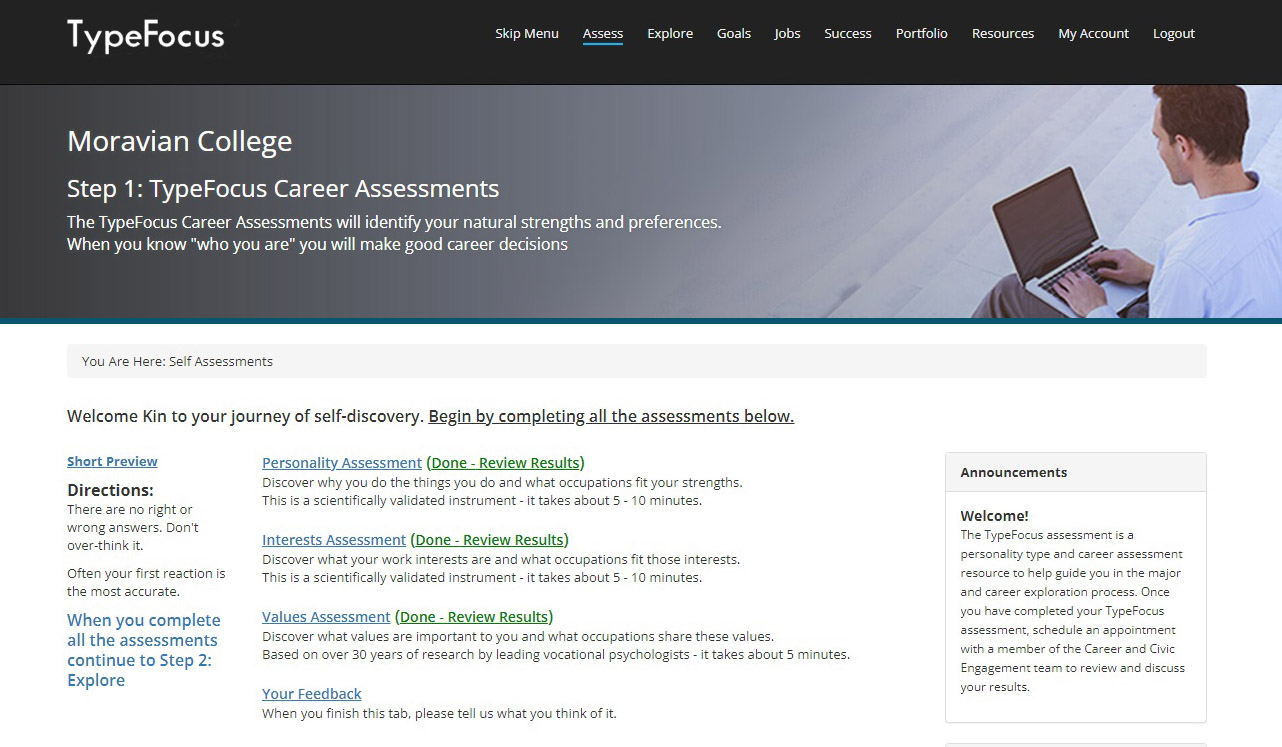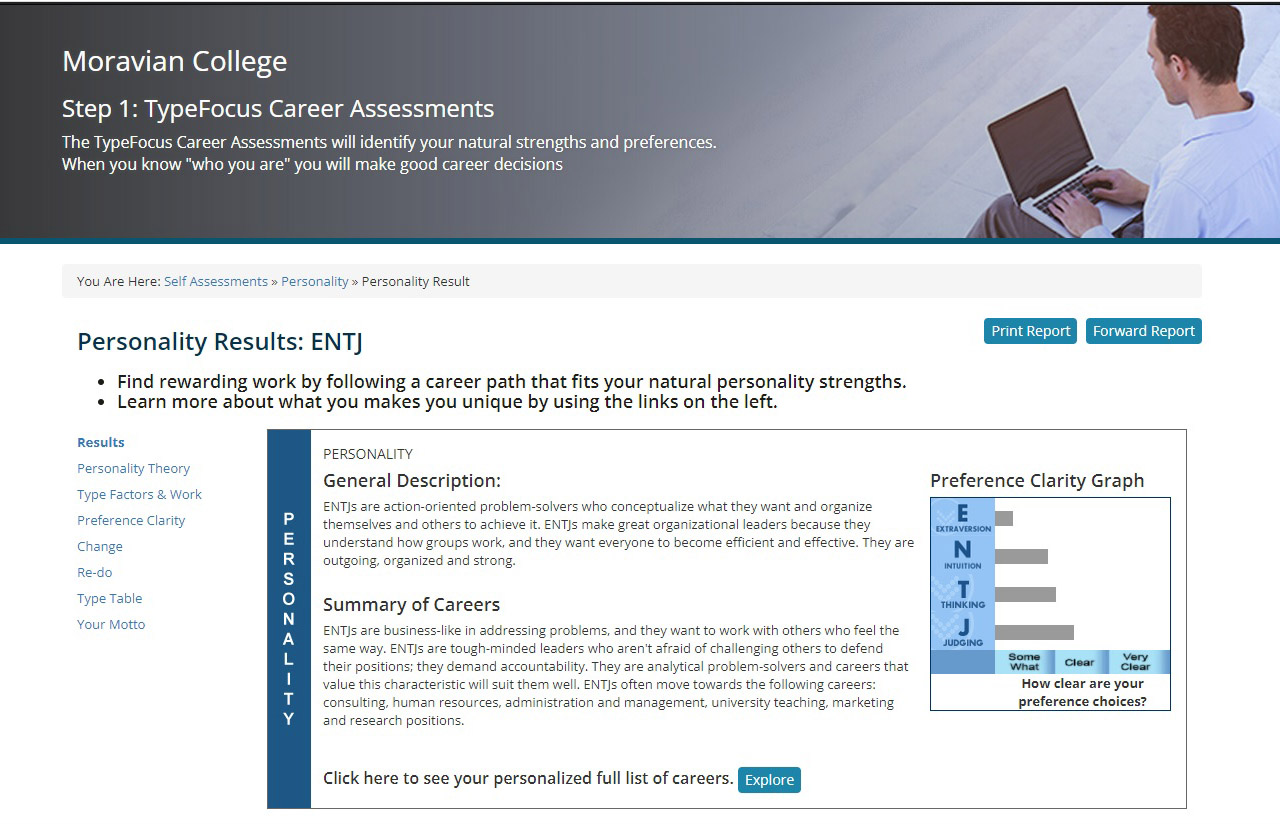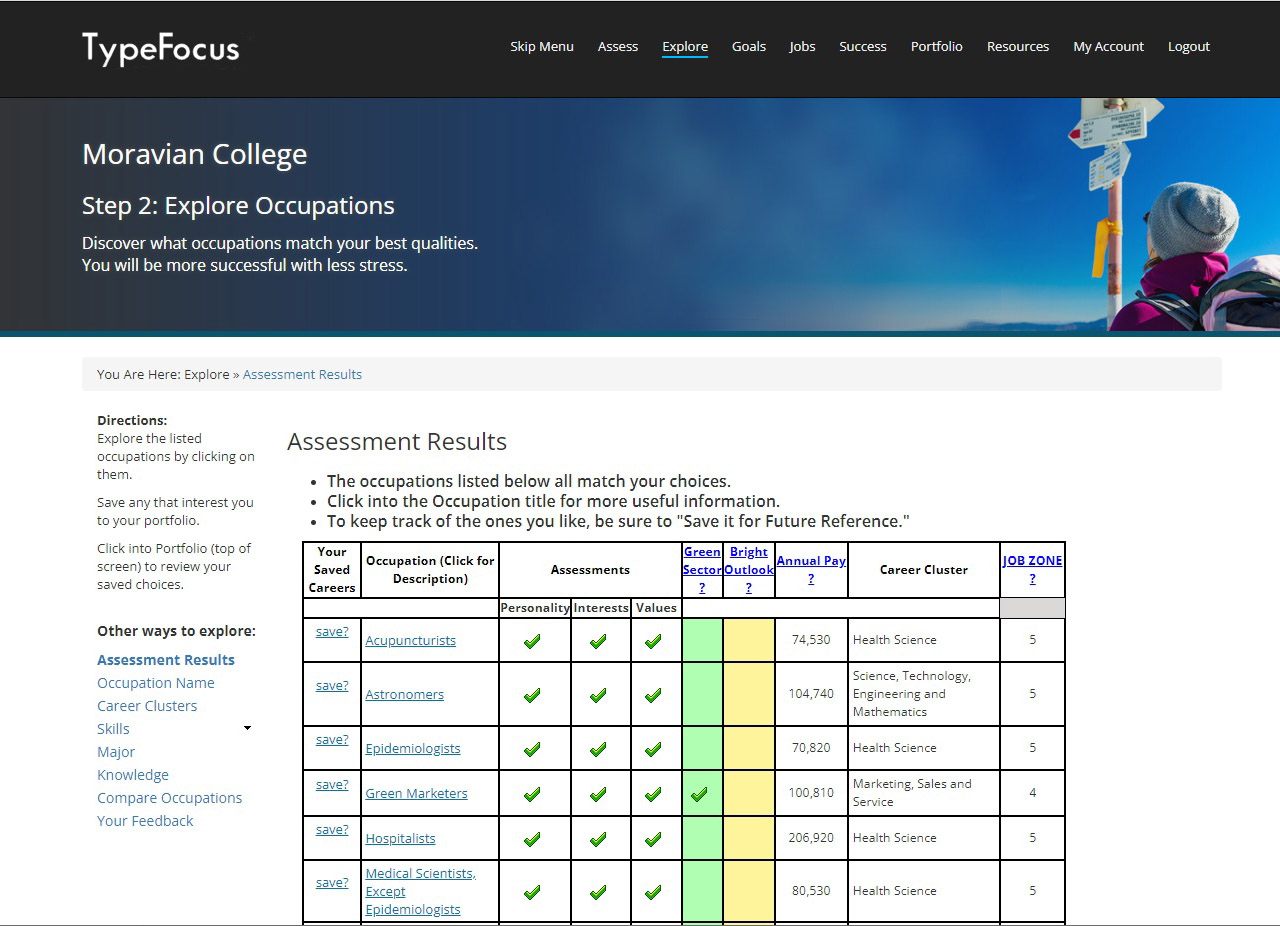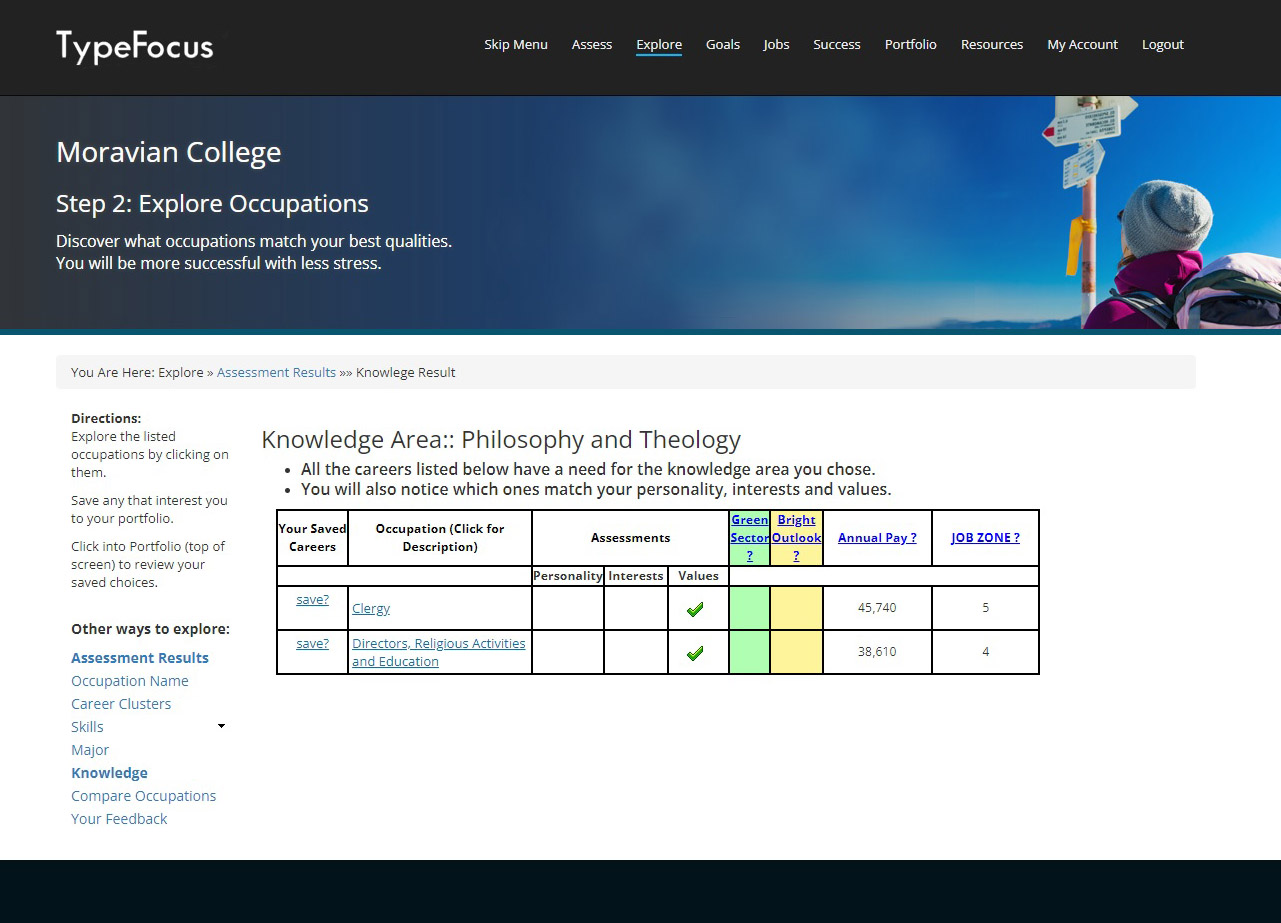University Software is Limiting the Paths of Philosophy and Theology Students
All first year students at Moravian University take an online personality assessment during the summer and then meet with their career development strategist. This software, TypeFocus, uses the problematic Myers-Briggs Type Indicator (MBTI) assessment. Yet even more alarming is how it represents a cultural bias against the value of the humanities and religious studies.

Image note: Moravian transitioned from a College to a University in the summer of 2021, but the software has yet to reflect that change.
The software is also used by Briar Cliff University, Tennessee Tech University, University of Detroit Mercy, York Technical College, Eastern Kentucky University, Washtenaw Community College, and more. The first of three sections of the TypeFocus assessment is a modified version of the MBTI assessment, and asks students to respond to 62 prompts by selecting one of two choices. (Example items: Pick the option that best describes you: 1) tender or 2) objective?; Which option do you find more appealing: 1) by yourself or 2) with others?). The questions offer no context and limit respondents to dichotomous answer choices, meaning that there is no option for expressing that “it depends.”
The tool then generates a report that assigns the student their personality types—a combination of 4 letters, with each letter representing a personality characteristic. Based on the MBTI, there are 16 personality types, implying all individuals can be sorted into 16 unique personalities. There is no clear scientific evidence for personality “types” or categories; evidence instead suggests that personality falls on a continuum. This unscientific sorting of individuals into 16 categories is one major concern I have with the assessment tool. An improvement upon the original MBTI, TypeFocus allows students to change their “letters” and provides a scale of how clearly you are one letter or not. While this can be a useful way for students to consider their preferences for organizing information and making decision, it is critical that they understand that the MBTI is a tool for self-reflection rather than as a conclusive personality assessment. It is also crucial that the university provide students with the guidance and support to engage in such self-reflection. Moravian career development strategists handle 230 students each and would be pressed for time to fully follow MBTI’s ethical guidelines and do all the other parts of their jobs in their short meetings with students.
My colleague in the psychology department and I continue to have extended discussions (and hearty disagreements!) about personality tests, but we both agree that the MBTI lacks validity (accuracy) and reliability (consistency) and therefore provides little in the way of evidence-based personality testing. Experts in personality psychology agree that due to poor validity and reliability, the MBTI is little more than pseudoscience. Most of the presentations and published work supporting the MBTI lack scientific rigor or have been funded by the same groups that sell the test and related packages.1 We lament how personality science has been twisted in order to be packaged and sold to Moravian and other institutions.
The second and third Typefocus assessments are better. The second, an interests assessment, asks 36 questions on a 1-5 likert scale (e.g., How much would you dis/like to market a new line of clothing? Sell soft drinks to stores or restaurants? These questions, however, assume students understand what it is like to work in such occupations.) in order to suggest careers based on John Holland's six personality types. The third, a values assessment, asks students to select and rank their top three values from a group of six. It is the most reflective. I do not take issue with these two assessments as I do with the MBTI, however I do have concerns about the “exploration” portion of the platform.
After the three assessments, in the explore stage, there is a “Major” section that has questions and answers to “What Can I Do With…” X major? There are 22 different programs/major groups, but the humanities are conspicuously absent. There is a “Knowledge area” section that includes humanities. For Philosophy and Theology, only two jobs are listed: clergy and director of religious activity and education. There is no mention of religious studies anywhere in the software.
Scholars of religion, and the humanities in general, need to be vigilant of the advising software students are exposed to in their institutions. I have contacted the editor of Daily Nous (a news outlet for academic philosophers) regarding this problem and he published a blog post suggesting philosophers “take the initiative to contact career counselors at your university or college to make sure they’re aware of other resources regarding the career prospects of philosophy majors and the practical benefits of majoring in philosophy.” Religious studies as a field also needs to do a better job of promoting religious literacy and the study of religion. I have met multiple times with staff to articulate my concerns with the software. They have since created a supplement to provide to students addressing my concerns and contacted the company. However, it remains to be seen if the software actually changes. Even if this company updates their information, it is likely other advising software perpetuates similar biases against the humanities and religious studies.
1 Frank Coffield, David Moseley, Elaine Hall, and Kathryn Ecclestone, Learning Styles and Pedagogy in Post-16 Learning: A Systematic and Critical Review (London: Learning & Skills Research Centre), 2004.
Kin Cheung is assistant professor of East and South Asian religions at Moravian University. He researches contemporary Buddhism, including Buddhist-based meditation's effects on the brain and senses of self, the practical implications of Buddhist ethics, the relationship between Buddhism and mindfulness, and the involvement of Buddhist institutions in China’s stock market. His next major project is a case study of a contemporary Chinese American religious healer.







